When Zach and Leslie Wieber started their family, they were unaware of Fragile X syndrome. Then in 2012, they received the news that changed their lives. Their sons, now ages 13, 11, and almost 10, all live with Fragile X syndrome. Like many parents, the Wiebers felt relief and fear when their children were diagnosed.
Read moreAuthor: FRAXA Research Foundation
Link Between Lipid Profile, eCBome System and Gut Microbiome in Fragile X Syndrome

Why does obesity challenge so many people with Fragile X? Dr. Caku’s team thinks changes in the gut are the culprit. This team has found that Fragile X syndrome causes changes in the tiny organisms that live in our gut. They believe that these abnormalities cause changes in the brain which impair learning and behavior.
Read moreUSA Today, “Fragile X treatment: Decades later, progress in rare genetic condition”
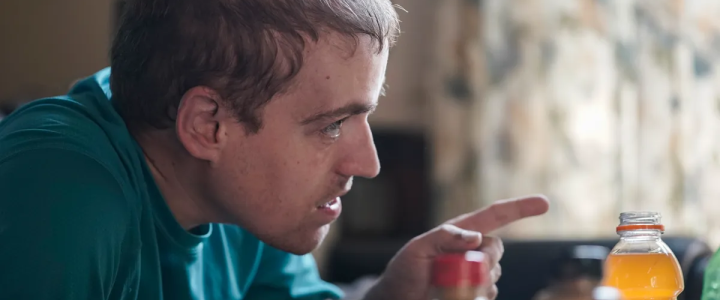
In recent weeks, USA Today spent days with FRAXA co-founders Dr. Mike Tranfaglia and Katie Clapp, and their son Andy. Andy lives with Fragile X syndrome and is the focus of a segment of USA Today’s occasional series that explores how scientific advances are transforming care for rare diseases.
Read moreUSA Today Video, “Living with Fragile X Syndrome: ‘He is growing… it’s just really slow'”

Born with Fragile X Syndrome, a rare developmental disorder, Andy Tranfaglia, thrives with the help of his parents and a community of supporters.
Read moreCharacterization of Microglia Transcriptional Profile in Fmr1 Knockout Mice Model

With this grant, the team will identify the pathways responsible for this excessive activation and attempt to reverse the excess. If they can correct this using drugs, they will be able to identify a new potential treatment for Fragile X syndrome solving one more piece of the Fragile X brain puzzle.
Read moreThe Role of Astrocyte BMP Signaling in Fragile X Syndrome

Astrocytes are star-shaped cells that make up one fifth of all cells in the human brain. Recently researchers found a specific pathway in astrocytes that is overactive in Fragile X syndrome, and they hope to bring this pathway back to normal with a drug. With this grant, the team will try to correct the pathway in Fragile X mice. The hope is that they will find a new potential treatment approach for Fragile X syndrome.
Read moreMemorial Tribute to Dr. Stephen T. Warren

Dr. Stephen T. Warren passed away on June 6, 2021. In 1991, Dr. Warren discovered the genetic mutation which causes Fragile X Syndrome and named it FRAXA. Donations can be made in his honor to FRAXA Research Foundation.
Read moreMeet Tyler!
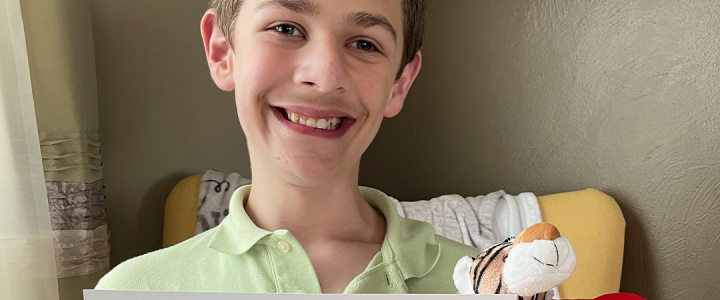
Meet #FriendofFRAXA Tyler! If you would like to nominate someone as a #FriendofFRAXA, we welcome all who have been touched by Fragile X, including friends, grandparents, siblings, professionals and companions alike to become a #FriendofFRAXA with the goal of putting a face to Fragile X for those who may not know someone directly.
Read moreIdentifying Cellular and Molecular Signatures in Human Neurons That Distinguish Fragile X Syndrome Patients with Divergent EEG Profiles

Why is it so hard to find the right medications to help people with Fragile X syndrome? Just as Fragile X affects individuals differently, medications do as well. This project aims to bring personalized medicine to Fragile X syndrome.
Read morePreclinical Testing of High Fat/Low Carb Diets in Fragile X Mice and Cells
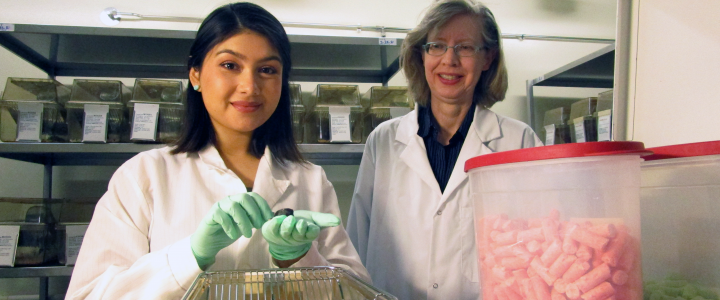
With a $90,000 research grant from FRAXA, Dr. Cara Westmark’s team will use mice to determine if more palatable Atkins-type diets can improve sleep and boost learning skills for those with Fragile X syndrome.
Read moreDrug Tolerance in MGluR5 Clinical Trials – Dr Patrick McCamphill 1:1 with FRAXA
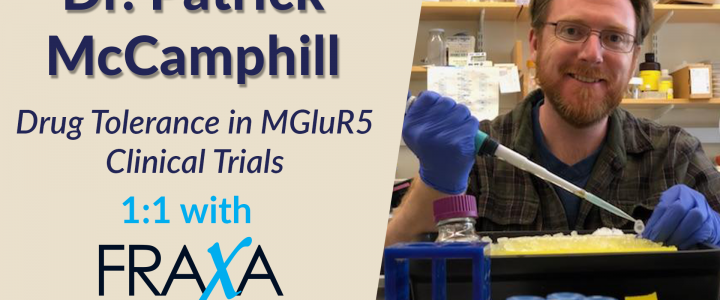
We have long suspected that the clinical trials of mGluR5 blockers from Novartis and Roche failed because the drug triggered tolerance, losing effect over time. With a $90,000 grant from FRAXA, Dr. Patrick McCamphill, a Postdoctoral Fellow in the MIT lab of Dr. Mark Bear, is investigating. He does indeed find tolerance, and now he is looking for ways to overcome it.
Read moreWe Started Out Small, Now Look…

FRAXA Research Foundation is spreading awareness across the world! We’d love to see you light up our world on July 22 as part of World Fragile X Day!
Read moreNPR Feature – A Fragile X Treatment May Be On The Horizon

With a promising new treatment on the horizon, NPR reflects back at the past 10 years, providing a glimpse into both the science and research of Fragile X through the eyes of key researchers, in addition to the lives of this family, their quest for a cure, and what that may look like for their son, Andy.
Read moreFRAXA Drug Validation Initiative (FRAXA-DVI)

The FRAXA Drug Validation Initiative (FRAXA-DVI) provides speedy, cost-effective, objective preclinical testing of potential Fragile X treatments. FRAXA-DVI uses in-vitro systems, behavior batteries, and gene expression and peripheral biomarker platforms to validate investigational new drugs and repurposed available compounds in Fragile X syndrome (FXS).
Read morePharmacotherapeutic Effects of Cannabidiol (CBD) in Fragile X syndrome (FXS) and Autism Spectrum disorder (ASD)

This study will test CBD (cannabidiol) treatment in male and female Fragile X mice to learn how and why it works and whether gender affects responses to CDB treatment. Along with clinical trials, this study will help us to understand and optimize the potential of CBD as a behavior-regulating treatment for Fragile X.
Read moreNPR Short Wave, “A Fragile X Treatment May Be On The Horizon”
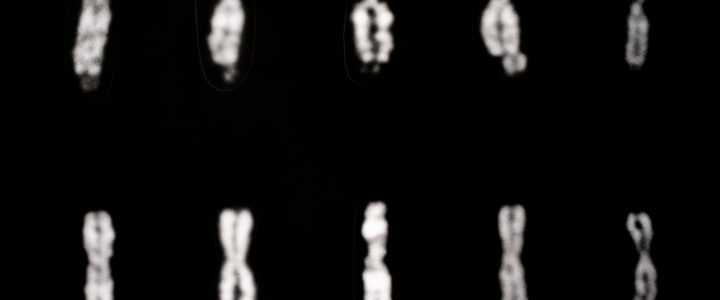
Katie Clapp and Michael Tranfaglia’s son was born with a genetic disorder that affects brain development. It makes it hard to learn language and basic daily tasks and often is accompanied by a host of other disorders. To help find a cure, they started a foundation and raised research money. After se…
Read moreHolly Roos Joins the FRAXA Team!
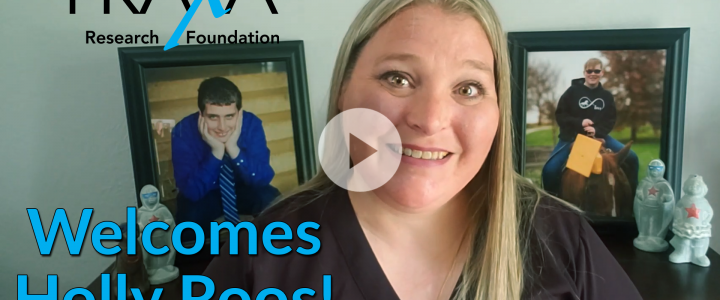
FRAXA Research Foundation is excited that long time Fragile X advocate and well-known figure within the Fragile X community, Holly Roos, is joining our team as Community Services Director. We are thrilled with the energy and enthusiasm Holly brings to the team.
Read moreBrain & Life, “A Mom Leads Efforts to Cure Fragile X Syndrome for Her Son and Others”

We haven’t found a cure yet, but we’ve moved closer to understanding fragile X syndrome and identifying treatment targets. We hope this will help our son and other families dealing with this life-changing condition.
Read moreCellular-Specific Therapeutic Targeting of Inhibitory Circuits in Fragile X Syndrome
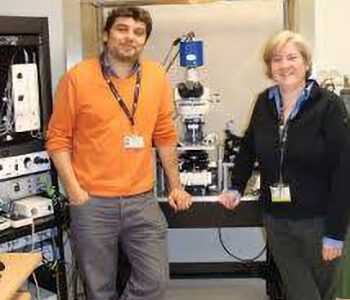
Studies have shown that the function of inhibitory networks is disturbed in Fragile X. This abnormality is not well understood but appears to be secondary to abnormalities in metabotropic glutamate and endocannabinoid systems. With a $90,000 grant from FRAXA, Dr. Molly Huntsman’s team examined how these networks interact and how inhibitory deficits can best be remedied.
Read moreFRAXA Supports Increased Funding for NICHD

Within the past month, FRAXA Research Foundation has signed on to join the Friends of of National Institute of Child Health and Human Development (NICHD), asking for an increase government funding to research disorders such as Fragile X syndrome.
Read moreAuditory Dysfunction in Fragile X Syndrome in a Mouse Model of Fragile X
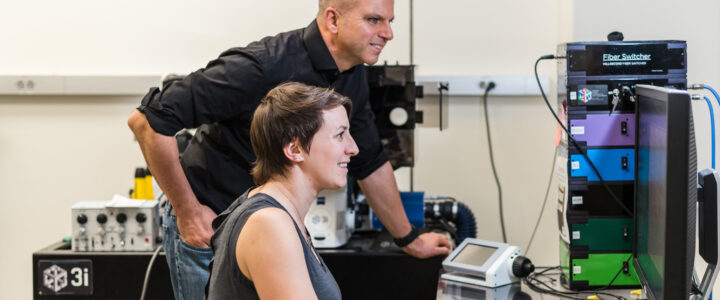
With a $90,000 grant from FRAXA, Dr. McCullagh and Dr. Achem Klug at the University of Colorado investigated whether auditory neural circuits are altered in Fragile X mice. They saw minor differences in these mice compared to B6 (control) mice in several measures of auditory acuity. Fmr1 mice had increased latency to the startle response for almost all conditions compared to B6 mice, suggesting altered timing to acoustic cues. These experiments show that, consistent with patient reports and anatomical/physiological data, the auditory system is altered in a mouse model of FXS, though with some potential compensation leading to a subtle behavioral impact.
Read moreClinical Trials and Cyclic AMP in Fragile X Syndrome: A Life Journey

In November 2020, a phase II clinical trial reported extremely successful results. This clinical trial of a PDE4D inhibitor from Tetra Pharmaceuticals was conducted by Dr. Elizabeth Berry-Kravis at Rush University Medical Center and funded by FRAXA Research Foundation. In this Simons Foundation lecture, Elizabeth Berry-Kravis traces 30 years of Fragile X research, from identifying its cause, through finding dozens of treatment targets, through a series of disappointing clinical trials.
Read moreScreening Combinatorial Pharmacological Therapies for Fragile X Syndrome
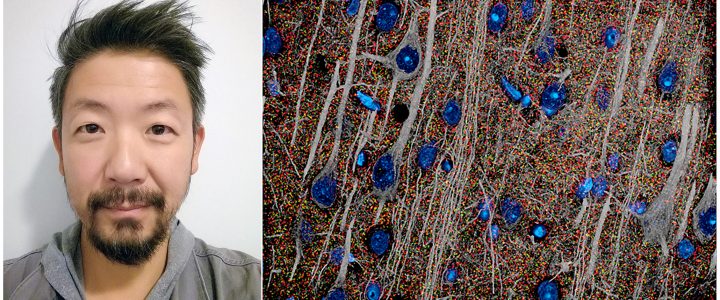
FRAXA Research Foundation has awarded a $90,000 research grant to Stanford University principal investigators Dr. Philippe Jacques Mourrain and Dr. Gordon Wang, along with postdoctoral fellow, Dr. Rochelle Coulson. They are evaluating additive effects of combinatorial drug treatments to correct a broad spectrum of deficits observed in Fragile X syndrome.
Read moreEducating Young Children with Fragile X Syndrome
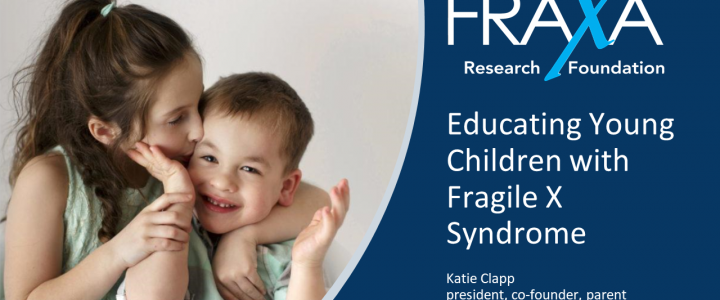
When a team of elementary school teachers and therapists asked us to share strategies for working with young children who have Fragile X syndrome, we developed this session featuring tips, techniques, and stories. Katie Clapp, co-founder of FRAXA Research Foundation and parent of a young man with Fragile X, and Tracy Antonelli, whose two teenage boys have Fragile X, present this session to help teachers assist their students.
Read moreThe Why and How of FRAXA’s Work to Find a Cure for Fragile X

Thank you Talk Fragile X for having FRAXA’s cofounder Katie Clapp as a guest on your podcast! It was a pleasure to share why FRAXA got started and our motivation for finding effective treatments and ultimately a cure for Fragile X syndrome.
Read more
